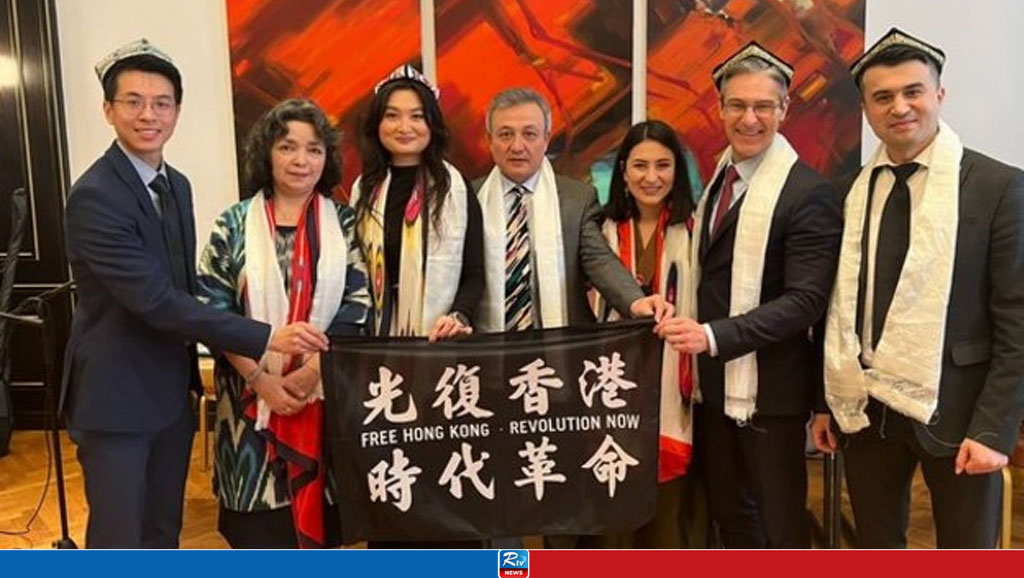China organising 'media tours' to change narrative about human rights abuses in Xinjiang: Report
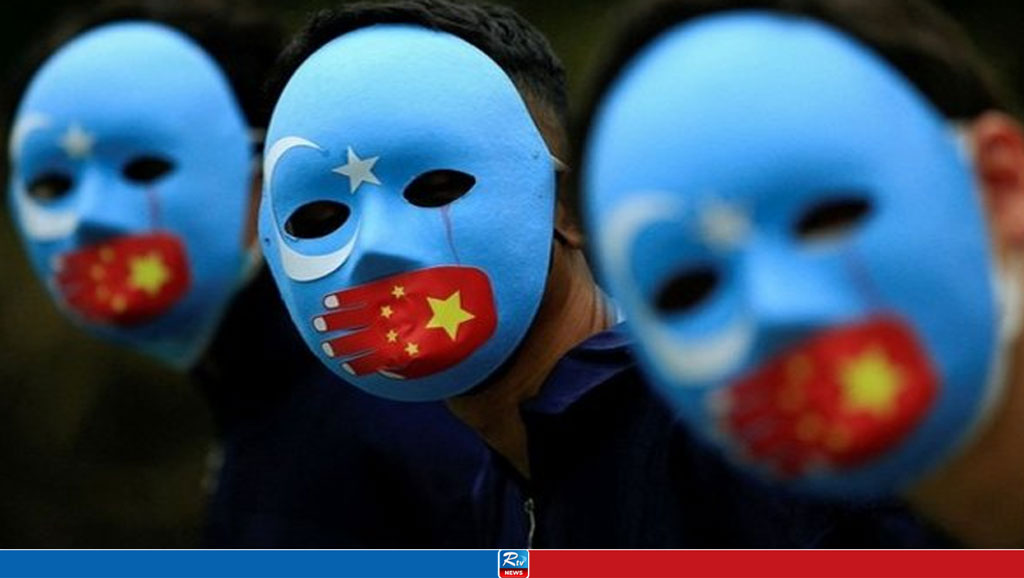
Aiming to change the narrative about the Xinjiang region where China is accused of committing grave human rights abuses, Beijing is organising so-called media tours with friendly countries to somehow propagate a different version of the region, a report by Al Jazeera stated.
Under Chinese Chinese President Xi Jinping's vision of "telling the story of Xinjiang" and "confidently propagating the excellent social stability of Xinjiang", at least five such tours took place in 2023 itself.
Al Jazeera cited a report of Olsi Jazexhi, an Albanian-Canadian historian and journalist who initially thought that the reports about human rights violations in the Xinjiang Uighur Autonomous Region (Xinjiang) of Western China were "lies".
Multiple accounts from people who had fled the area as well as reports from human rights organisations were painting a picture of human rights abuses being perpetrated on a massive scale.
Muslim minorities in Xinjiang - the majority of whom are Turkic-speaking Uighurs - were reportedly being deprived of basic freedoms, their cultural and religious heritage was being destroyed and at least 1 million of them had been interned in a vast network of detention camps.
The international community had also taken notice and the United Nations had raised its concerns. But Jazexhi was still unconvinced.
"I was certain that the stories were a scheme constructed by the US and the West to discredit China and divert attention away from their own human rights records regarding Muslims," he said.
Following this, Jazexhi contacted the Chinese embassy and was soon invited to join a media tour for foreign journalists.
"I went to defend the Chinese government," he recalled.
However, Jazexhi soon found that defending the Chinese narrative was a "far more difficult task" than he had anticipated.
In the first few days in Xinjiang, he and other foreign journalists had to sit through a series of lectures given by Chinese officials about the history of the region and its people.
"They were portraying the indigenous people of Xinjiang as immigrants and Islam as a religion that was foreign to the region," Jazexhi said. "It was incorrect."His disillusion only continued when he and other journalists were taken by their Chinese hosts to one of the so-called vocational training centres outside the regional capital of Urumqi, according to Al Jazeera.
Jazexhi also had a chance to interact with several Uighurs and it quickly became clear they were not the "terrorists" or "extremists" Beijing had claimed.
He had thought he was going to expose Western lies but he had instead witnessed oppression on a massive scale.
"What I saw was an attempt to eradicate Islam from Xinjiang," he said.
Since Jazexhi's visit, the UN Human Rights Council has found that Chinese restrictions and deprivations in Xinjiang may constitute "crimes against humanity".
The US government as well as lawmakers in Australia, Canada, France and the United Kingdom have labelled the Chinese treatment of Uighurs and other Turkic-speaking Muslims in the region a genocide. Meanwhile, several countries have imposed economic restrictions on goods from Xinjiang in response to evidence of forced labour in the region, Al Jazeera reported.
However, despite all the criticism, Beijing has continued to arrange visits - primarily for diplomats and journalists from Muslim countries - to Xinjiang.
Chinese media have reported about at least five such media tours taking place in 2023, with Xinjiang visits also arranged for foreign diplomats and Islamic scholars.
Moiz Farooq, who is the executive editor of Daily Ittehad Media Group and Pakistan Economic Net, visited Xinjiang in the middle of December as part of a delegation of media representatives from Pakistan.
Like Jazexhi in 2019, Farooq also went to Xinjiang with the intent to observe for himself that the stories he had heard were not true.
Unlike Jazexhi, Farooq left Xinjiang impressed by the region's level of development and assured that the local Muslims were largely living a free and content life.
Farooq does not believe that accounts and reports from human rights organisations and UN organs detailing human rights abuses in Xinjiang are correct.
Naz Parveen is the director of the China Window Institute in Peshawar, Pakistan, and she was on the same tour as Farooq. She too was impressed by the prosperity she observed in Xinjiang.
Echoing Beijing's characterisation of the situation, Parveen believes that what have been termed human rights violations in Xinjiang can be more accurately described as "law enforcement operations targeting religious extremism", according to Al Jazeera.
On another tour of Xinjiang in September, Chinese state broadcaster CGTN quoted columnist and Filipino politician Mussolini Sinsuat Lidasan praising Chinese "anti-terrorism" measures in Xinjiang.
On the same tour, Donovan Ralph Martin, who is the editor of the Daily Scrum News in Canada, was likewise quoted by CGTN as saying that "absolutely, there is freedom of religion in Xinjiang, and anybody who does not say that is ignorant".
Notably, in 2020, Chinese President Xi Jinping called for "telling the story of Xinjiang" and "confidently propagating the excellent social stability of Xinjiang".
Canadian-Uighur activist Rukiye Turdush sees the media tours as integral to that mission.
"He wants to change the narrative about Xinjiang," she said.
Henryk Szadziewski is a senior researcher at the NGO Uyghur Human Rights Project. He says media tours, like the ones in Xinjiang, are a common tactic employed by countries that have something to hide.
Turdush does not attach much credibility to conclusions reached by foreign journalists based on talks with Uighurs who have been living in an environment of fear for years and been subjected to heavy surveillance as well as state propaganda.
"Few Uighurs and other Turkic people in Xinjiang have much choice other than to stay silent or echo Chinese propaganda," she said.
Australian journalists on a media tour in September reported they spoke to a souvenir vendor who had not been provided by their tour guides. The vendor said that he had spent time at an internment camp but when the journalists started to ask more questions, a person suddenly appeared and began to film the vendor's answers, Al Jazeera reported.
Even former UN human rights chief Michelle Bachelet found her long-delayed visit carefully "choreographed". But her final report, released moments before she left office, found China had probably committed "crimes against humanity" in Xinjiang.
However, in recent years, security measures in Xinjiang seem to have been relaxed according to Maya Wang, an associate Asia director at Human Rights Watch. Detention camps have been closed down and police checkpoints have been removed.
Instead, a vast network of sophisticated facial-recognition security cameras has reportedly been established throughout the region, while people who were previously detained in camps have been transferred into China's opaque prison system, Al Jazeera reported.
At the same time, information flowing in and out of Xinjiang remains tightly controlled, while Xinjiang residents are punished for having unauthorised contact with people outside China.
"The genocide is still happening but it is just much more covert now," Turdush said.
Despite the controversy surrounding the organised tours, both Turdush and Jazexhi believe that foreign journalists and officials should continue to visit Xinjiang as long as they challenge the narratives that are presented to them.
"They should go," Jazexhi said. "And they should speak the truth about what they see in Xinjiang and what they don't see."
Comments
Jacob Zuma barred from running in election
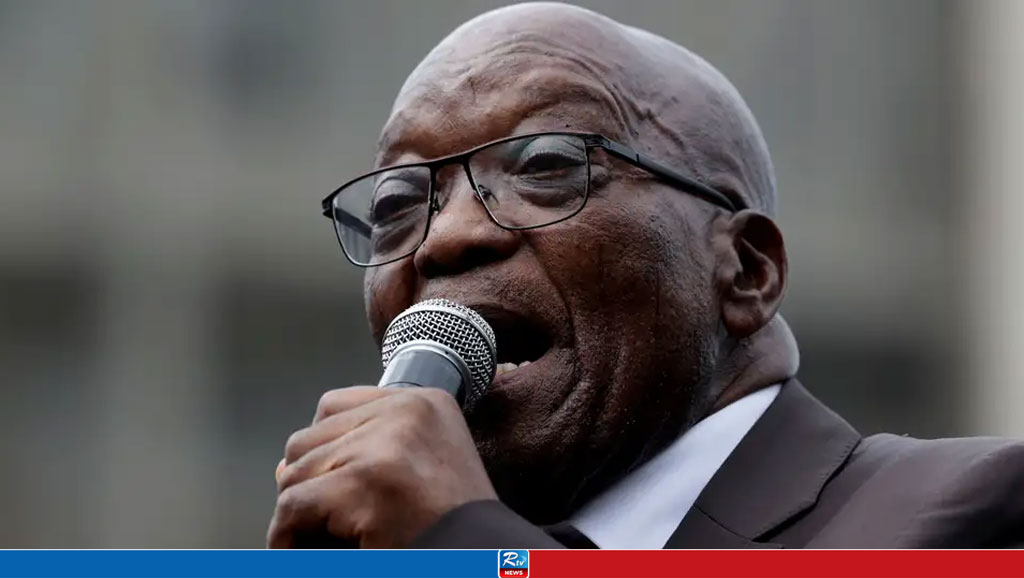
45 dead in South Africa bus crash, 8-year-old girl only survivor
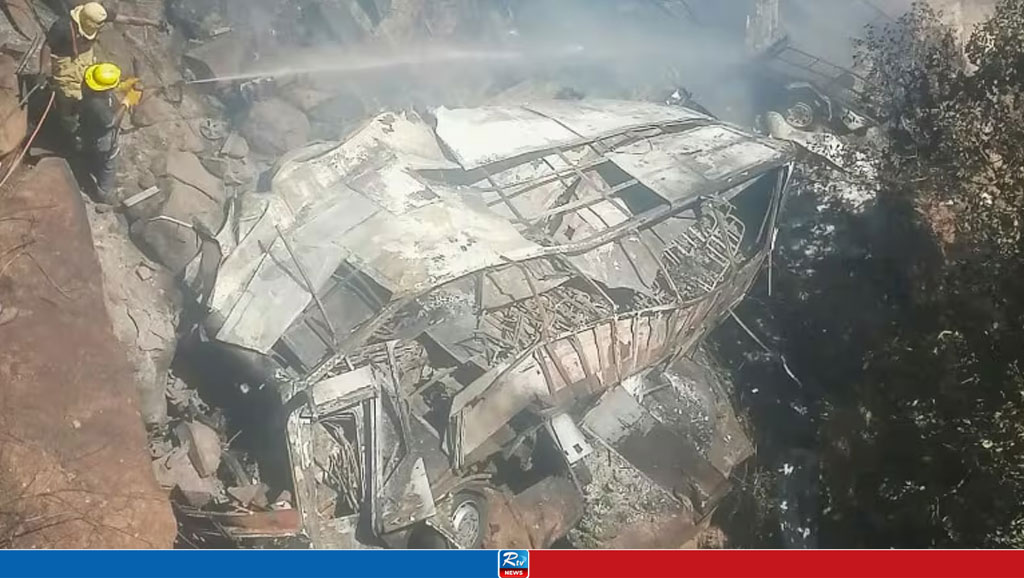
World's most expensive cow sold for $4.3 million in Brazil

Turkey: Polls close in Erdogan's 'last election'
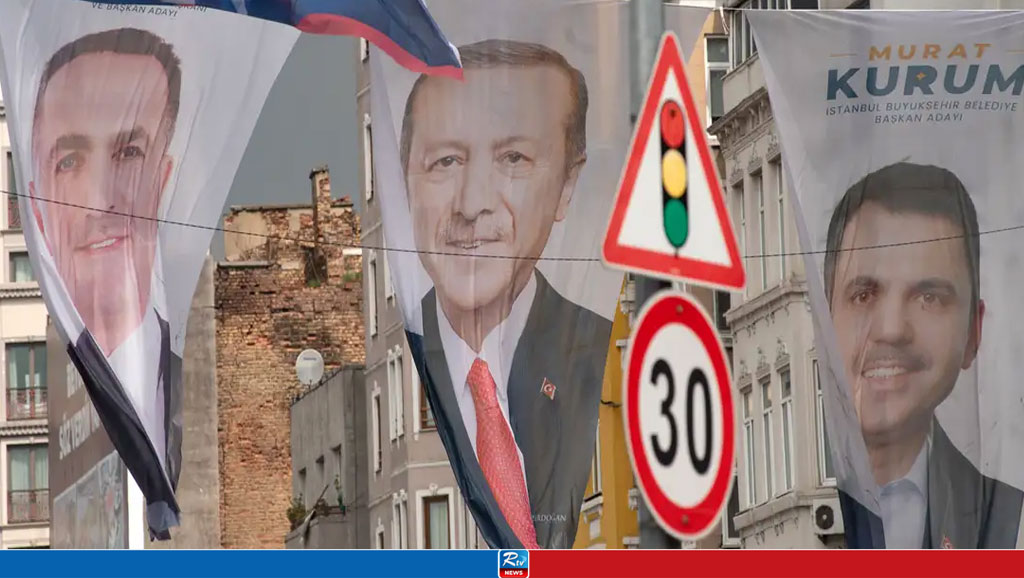
Italy is overtaking Germany as Europe's economic powerhouse
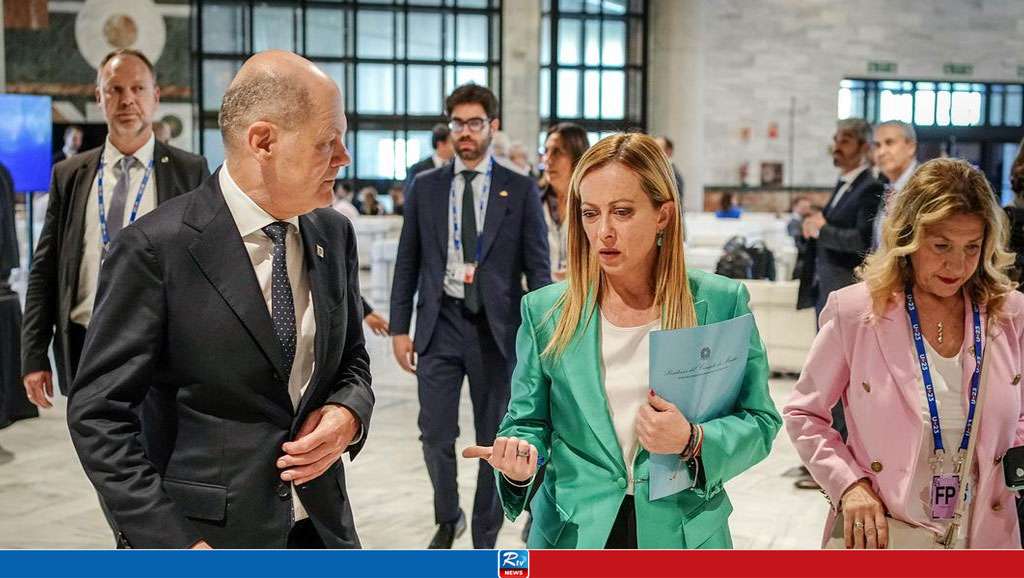
Lawmakers urge Biden to call out more Chinese biotech firms
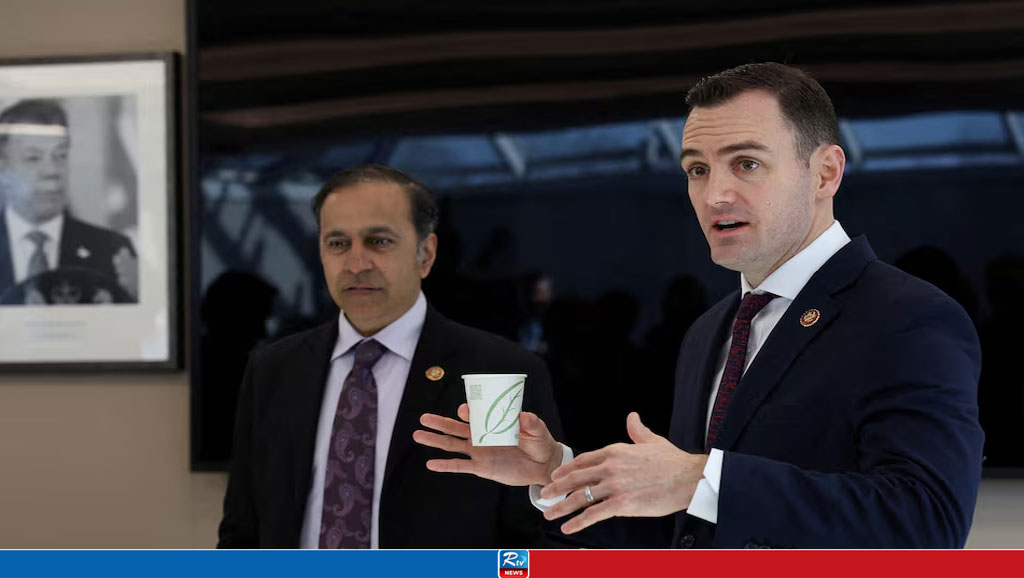
Gaza death toll crosses 33,000


 Live Tv
Live Tv

